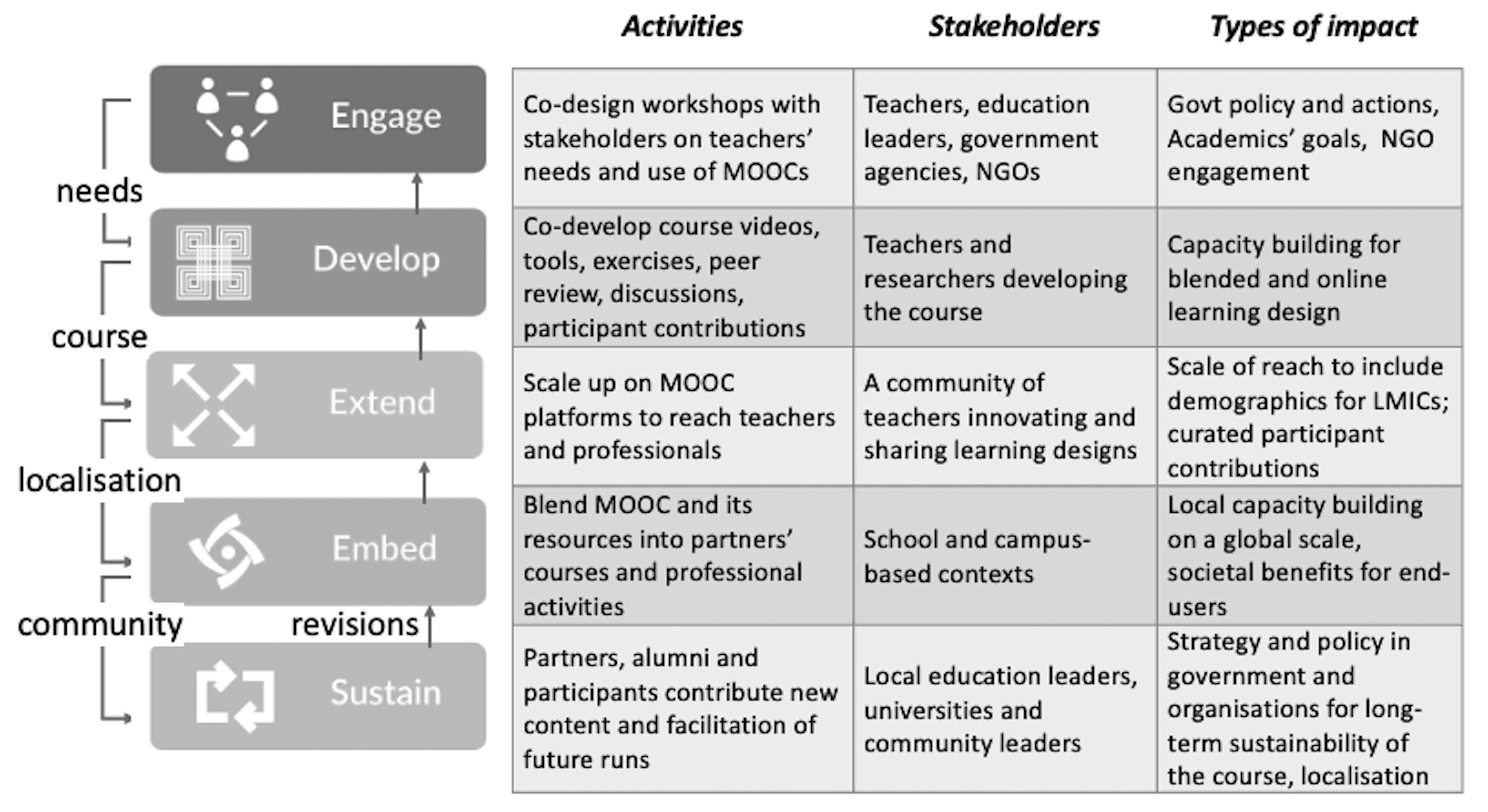


Are you sure you want to reset the form?
Your mail has been sent successfully
Are you sure you want to remove the alert?
Your session is about to expire! You will be signed out in
Do you wish to stay signed in?
Designing with evidence in mind produces online learning that is informed by evidence of what works, and designed to collect further evidence of impact. We use the ‘Value Creation Framework’ from Chapter 7 to provide a robust way of evaluating online learning in terms of its value to end users. Our approach to online learning design must therefore set out from the start to collect evidence of the value of its impact on professional practice. For the plan to work we developed a Co-Design Theory of Change that is illustrated by completed case studies. Each of its five stages generates its own data to establish the progress made through iterative cycles of change for impact. Promoting ever-improving cycles of online learning design will foster a culture of innovative collaboration in digital education, and inspire professionals to develop and build a shared community of knowledge.
Value Creation Framework, co-design theory of change, professional development, building community knowledge, professional collaboration, orchestrated network of knowledge exchange, citizen science.
